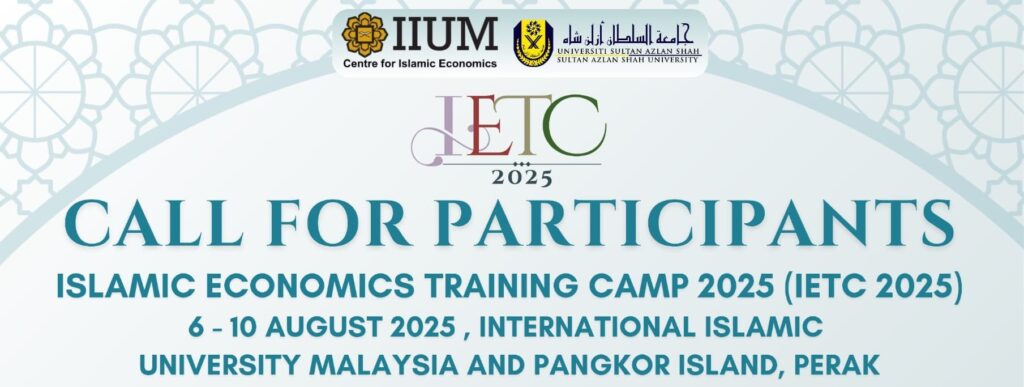
ISLAMIC ECONOMICS TRAINING CAMP 2025 (Calling for Participant)
“Developing Thought Leadership Among the Next Generation of Islamic Economics”
6 – 10 August 2025
Venue: IIUM|Pangkor Island, Perak
International Islamic University Malaysia in Collaboration with University Sultan Azlan Shah
Introduction
The Islamic Economics Training Camp (IETC) 2025 is a prestigious five-day program designed to nurture a new generation of visionary leaders in the field of Islamic Economics. Targeted at postgraduate and final year undergraduate students, this fully sponsored initiative offers an immersive experience combining intellectual enrichment, leadership development, and meaningful networking. Set against the backdrop of IIUM and the serene surroundings of Pangkor Island, IETC 2025 is not just a training camp — it’s a transformational journey.
Objective
The objective of IETC 2025 is to:
Empower aspiring Islamic economists with essential knowledge, ethical grounding, and leadership skills;
Foster critical thinking and innovative ideas rooted in Islamic economic principles;
Cultivate a strong network of young, like-minded individuals committed to the advancement of Islamic Economics globally;
Provide strategic exposure and practical insights through interactive sessions, expert engagement, and real-world applications.
Through IETC 2025, we aim to ignite passion, enhance competencies, and shape future leaders who are ready to contribute meaningfully to the development of Islamic Economics.
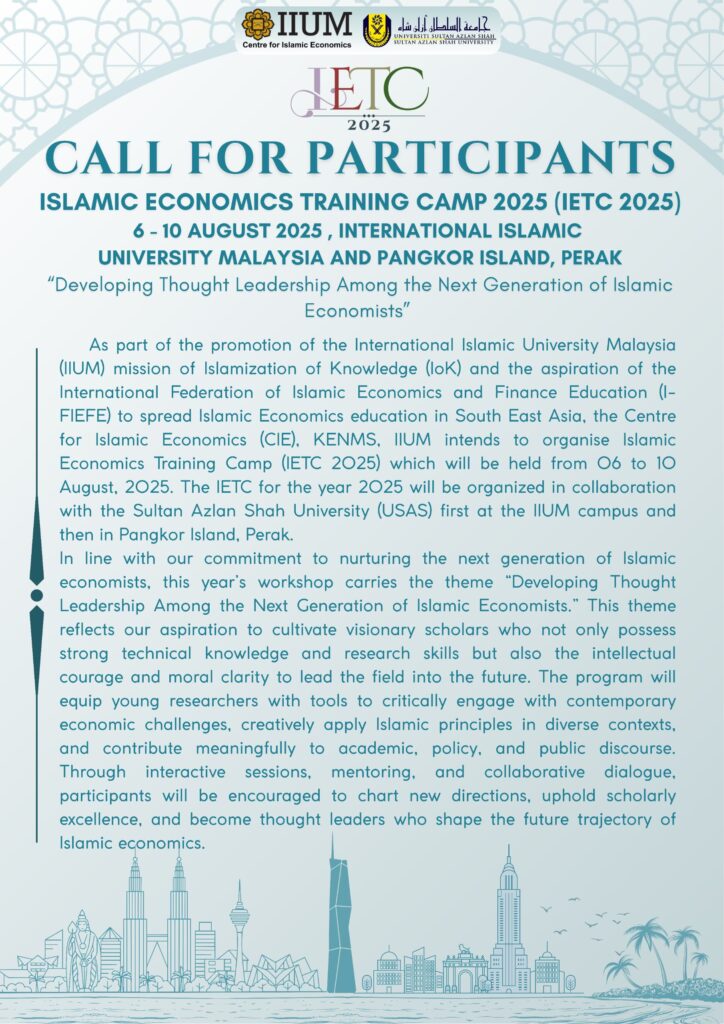
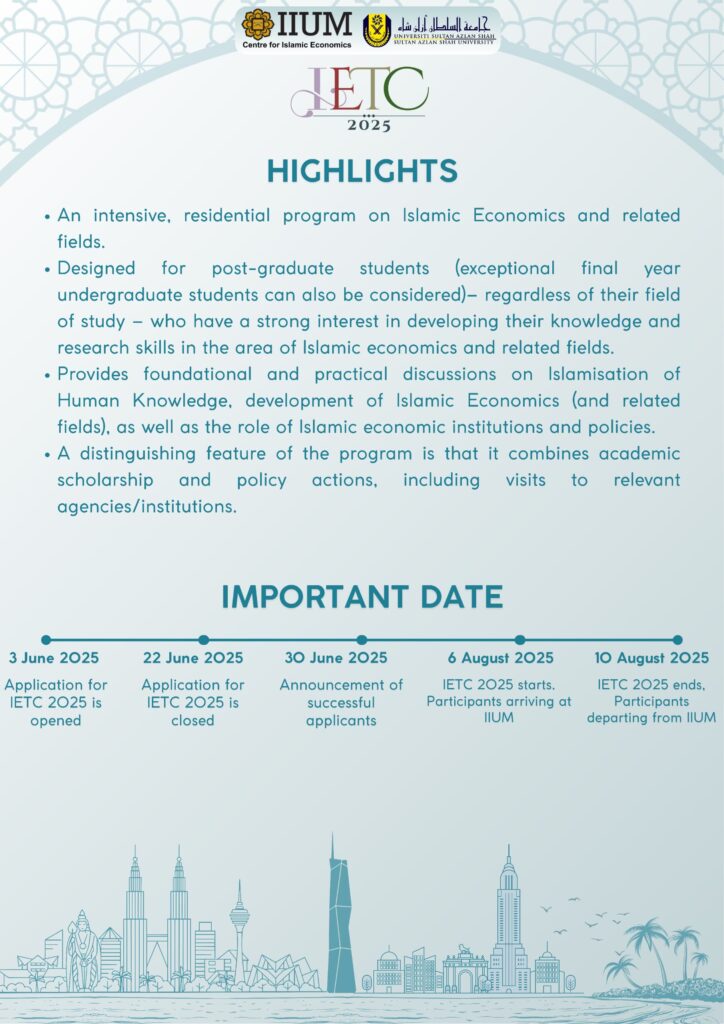
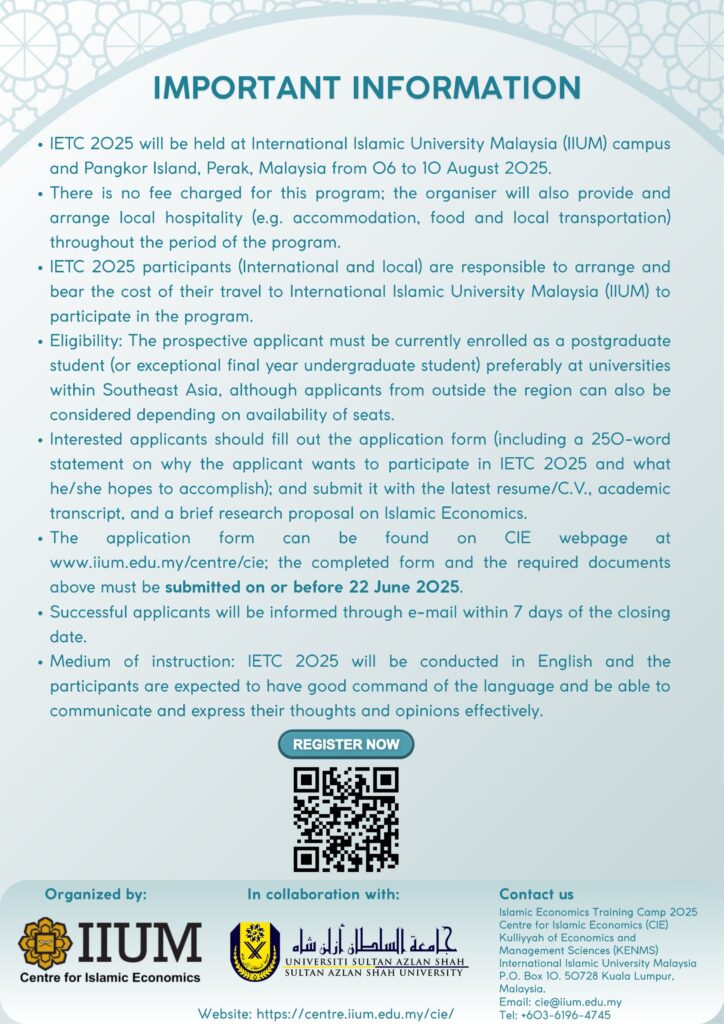
CALL FOR BOOK PROPOSAL:
Book on Islamic Economics or Edited Volume on Islamic Economics
Deadline for Submissions: 21/1/2025
Submission Format: Word document, PDF
Submit to: cie@iium.edu.my
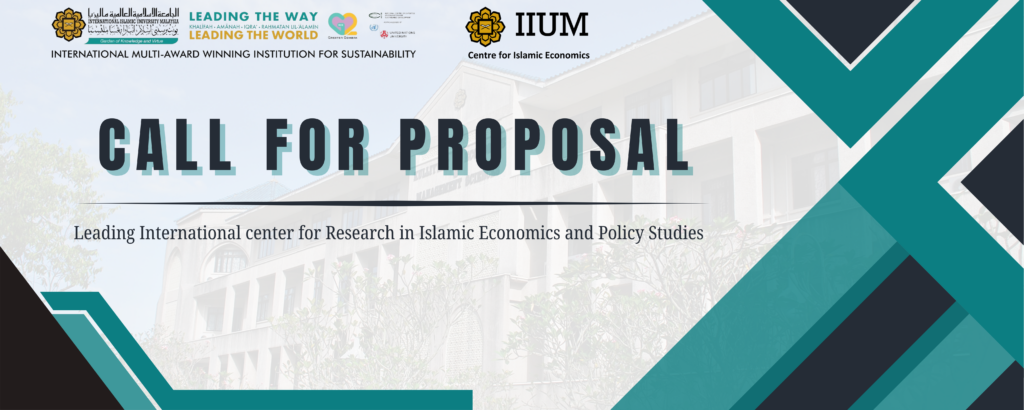
Introduction
The Centre for Islamic Economics (CIE), IIUM, invites KENMS academics to contribute to the advancement of knowledge in Islamic Economics by submitting book proposals. This initiative seeks to promote scholarly works that align with the principles of Maqasid Shariah and Tayyib, fostering sustainable socio-economic development.
Books or edited volumes that address contemporary issues and innovative approaches in Islamic Economics are highly encouraged.
Objective of the Call for Book Proposals
- To contribute to the literature of Islamic Economics through innovative and practical insights.
- To encourage research that addresses emerging socio-economic challenges while upholding Shariah principles.
- To foster collaboration among scholars and practitioners in advancing the discipline.
CALLING FOR PROPOSALS IERIF
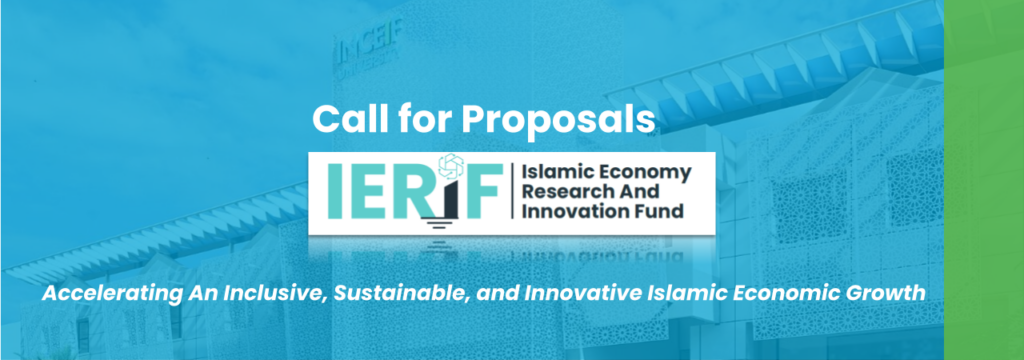
Introduction
In the Malaysia Budget 2024 Speech delivered on 13th October 2023 by YAB Dato’ Seri Anwar Ibrahim Prime Minister and Minister of Finance, an amount of RM20 million has been allocated to stimulate research, creativity and innovation in the Islamic economy.
“To delve deeper into the universal values of the Islamic economy and its experience in the current context, the Government is providing RM20 million to spur research as well as creativity and innovation in Islamic economy. This effort will be led by the International Centre for Education in Islamic Finance (INCEIF) in collaboration with MIFC and the industry.”
Objective of the Islamic Economy Research and Innovation Fund
- To spur research as well as creativity and innovation in Islamic economy in Malaysia that are aligned with the aspiration of the Ekonomi MADANI.
- To produce practical and innovative solutions to address the emerging socio-economic issues through values and impacts that are in line with the objective of Shariah (Maqasid Shariah) and the Tayyib principle.
- To promote a balanced distribution of wealth, eradicate poverty, foster collaboration, and encourage sustainable development.
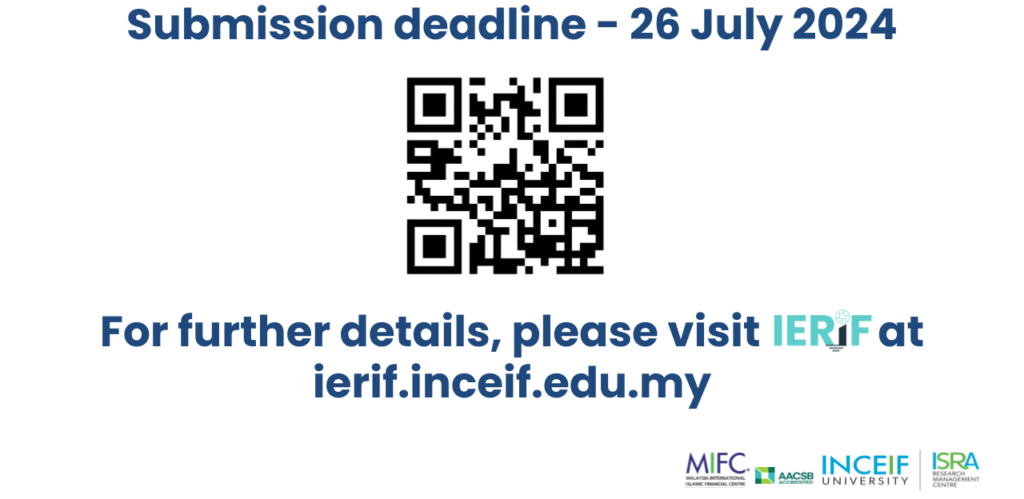
ISLAMIC ECONOMICS TRAINING CAMP 2023 (IETC 2023)
Introduction
As part of the promotion of IIUM mission of Islamization of Knowledge (IoK) and as part of the activities commissioned by IIIT to promote Islamic Economics education in South East Asia, the Centre for Islamic Economics (CIE), Kulliyyah of Economics and Management Sciences (KENMS), International Islamic University Malaysia (IIUM) intends to organise Islamic Economics Training Camp (IETC 2023) which will be held from 22 to 24 August in Acheh, Indonesia. CIE has conducted the first IETC in 2019, held at IIUM campus. The followings are highlights from the previous IETC.

